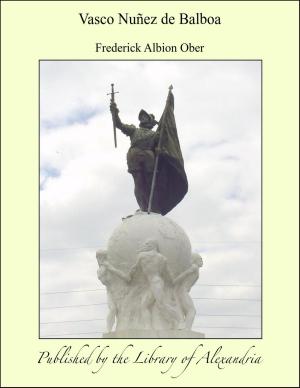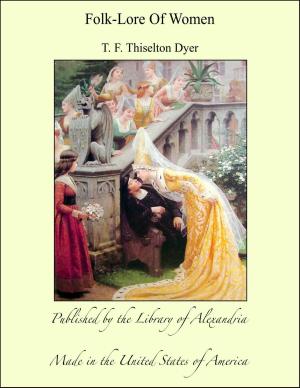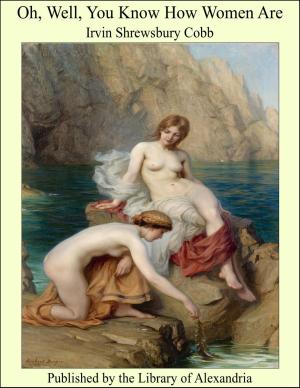Philip Augustus: The Brothers in Arms
Nonfiction, Religion & Spirituality, New Age, History, Fiction & Literature| Author: | George Payne Rainsford James | ISBN: | 9781465607218 |
| Publisher: | Library of Alexandria | Publication: | March 8, 2015 |
| Imprint: | Language: | English |
| Author: | George Payne Rainsford James |
| ISBN: | 9781465607218 |
| Publisher: | Library of Alexandria |
| Publication: | March 8, 2015 |
| Imprint: | |
| Language: | English |
Although there is something chilling in that sad, inevitable word, the past--although in looking through the thronged rolls of history, and reading of all the dead passions, the fruitless anxieties, the vain, unproductive yearnings of beings that were once as full of thrilling life and feeling as ourselves, and now are nothing, we gain but the cold moral of our own littleness--still the very indistinctness of the distance softens and beautifies the objects of a former epoch that we thus look back upon; and in the far retrospect of the days gone by, a thousand bright and glistening spots stand out, and catch the last most brilliant rays of a sun that has long set to the multitude of smaller things around them. To none of these bright points does the light of history lend a more dazzling lustre than to the twelfth century, when the most brilliant (if it was not the most perfect) institution of modern Europe, the feudal system, rose to its highest pitch of splendour; when it incorporated with itself the noblest Order that ever the enthusiasm of man (if not his wisdom) conceived--the Order of Chivalry: and when it undertook an enterprise which, though fanatic in design, faulty in execution, and encumbered with all the multitude of frailties that enchain human endeavour, was in itself magnificent and heroic, and in its consequences grand, useful, and impulsive to the whole of Europe--the Crusades. The vast expenses, however, which the crusades required--expenses not only of that yellow dross, the unprofitable representative of earths real riches, but also expenses of invaluable time, of blood, of energy, of talent--exhausted and enfeebled every christian realm, and left, in each, the nerves of internal policy unstrung and weak, with a lassitude like that which, in the human frame, succeeds to any great and unaccustomed excitement. Although through all Europe, in that day, the relationships of lord, vassal, and serf, were the grand divisions of society, yet it was in France that the feudal system existed in its most perfect form, rising in gradual progression:--first, serfs, or villains; then vavassors, or vassals holding of a vassal; then vassals holding of a suzerain, yet possessing the right of high justice; then suzerains, great feudatories, holding of the king; and, lastly, the king himself, with smaller domains than many of his own vassals, but with a general though limited right and jurisdiction over them all. In a kingdom so constituted, the crusade, a true feudal enterprise, was, of course, followed with enthusiasm amounting to madness; and the effects were the more dreadful, as the absence of each lord implied in general the absence of all government in his domains.
Although there is something chilling in that sad, inevitable word, the past--although in looking through the thronged rolls of history, and reading of all the dead passions, the fruitless anxieties, the vain, unproductive yearnings of beings that were once as full of thrilling life and feeling as ourselves, and now are nothing, we gain but the cold moral of our own littleness--still the very indistinctness of the distance softens and beautifies the objects of a former epoch that we thus look back upon; and in the far retrospect of the days gone by, a thousand bright and glistening spots stand out, and catch the last most brilliant rays of a sun that has long set to the multitude of smaller things around them. To none of these bright points does the light of history lend a more dazzling lustre than to the twelfth century, when the most brilliant (if it was not the most perfect) institution of modern Europe, the feudal system, rose to its highest pitch of splendour; when it incorporated with itself the noblest Order that ever the enthusiasm of man (if not his wisdom) conceived--the Order of Chivalry: and when it undertook an enterprise which, though fanatic in design, faulty in execution, and encumbered with all the multitude of frailties that enchain human endeavour, was in itself magnificent and heroic, and in its consequences grand, useful, and impulsive to the whole of Europe--the Crusades. The vast expenses, however, which the crusades required--expenses not only of that yellow dross, the unprofitable representative of earths real riches, but also expenses of invaluable time, of blood, of energy, of talent--exhausted and enfeebled every christian realm, and left, in each, the nerves of internal policy unstrung and weak, with a lassitude like that which, in the human frame, succeeds to any great and unaccustomed excitement. Although through all Europe, in that day, the relationships of lord, vassal, and serf, were the grand divisions of society, yet it was in France that the feudal system existed in its most perfect form, rising in gradual progression:--first, serfs, or villains; then vavassors, or vassals holding of a vassal; then vassals holding of a suzerain, yet possessing the right of high justice; then suzerains, great feudatories, holding of the king; and, lastly, the king himself, with smaller domains than many of his own vassals, but with a general though limited right and jurisdiction over them all. In a kingdom so constituted, the crusade, a true feudal enterprise, was, of course, followed with enthusiasm amounting to madness; and the effects were the more dreadful, as the absence of each lord implied in general the absence of all government in his domains.















